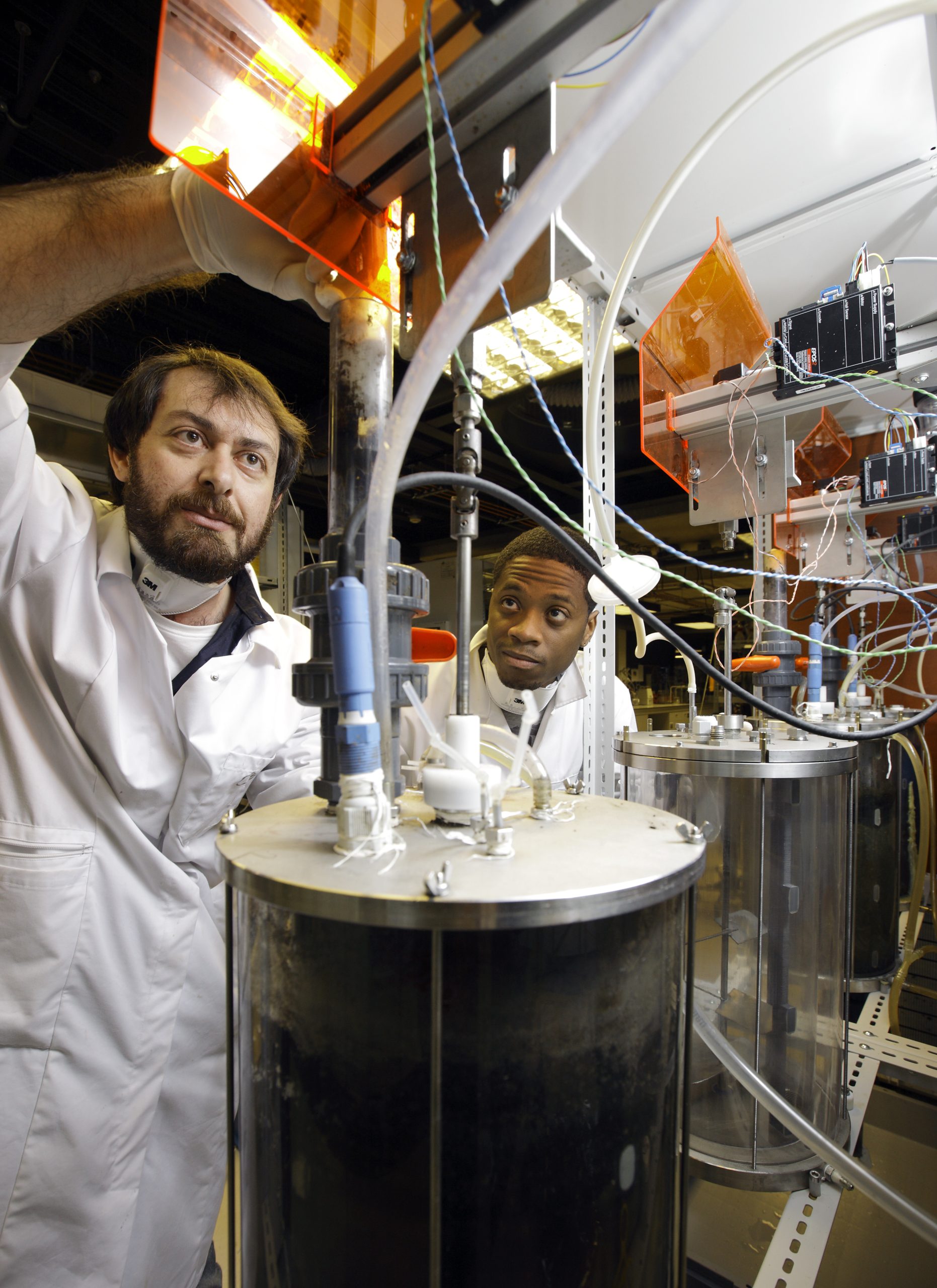The Dutch regional water authorities are calling for a 20% decrease in energy consumption n sewage treatment plants by 2030 and the lab of Anaerobic Digestion is already researching solutions. Surprisingly, toilet paper is the front runner.
The lab is situated in the building of Civil Engineering and Geo-sciences, in the section called the Water Labs. In a glass-walled room, there are eight projects running. Each researcher’s stall has a set of reactors breaking down organic materials, anaerobically or in the absence of oxygen.
Sewage treatment plants use a lot of energy, from electricity for pumping wastewater and transportation of sludge to aeration processes to clean the water. In order to offset these energy costs, Iranian Ph.D. candidate Dara Ghasimi is researching how he can take the plant waste, turn it into biofuel and feed it back to the plant for essentially free energy, while also reducing the amount of sludge in each step.
Specifically, Ghasimi is using a special sieve to collect fine sieve fraction (FSF), which has a high percentage of cellulose mainly from toilet paper. “FSF can be salvaged and recycled to make paper products or even toilet paper again. The public don’t really like that idea, though,” quips Ghasimi. He’s using four anaerobic digesters to break down the FSF to convert it to methane gas. This gas can then be used as an energy source.
Donning the gloves to open the FSF bucket and do the dirty work is the lab’s intern Jurensley Merenciana from Curacao. He is working with Ghasimi as part of his bachelor’s degree. “I’m studying the difference in thermophilic (65°C) and mesophilic (35°C) digesters as well as the difference in continuous or batch feeding regime,” explains Merenciana.
Some Dutch sewage treatment plants currently use mesophilic digesters. “The Netherlands is a pioneer in the area of cellulose recovery from waste water,” Ghasimi says. In the future, FSF may be used beyond sewage treatment plants as a fuel for heat energy or in production of bioethanol and bioplastics.



Comments are closed.